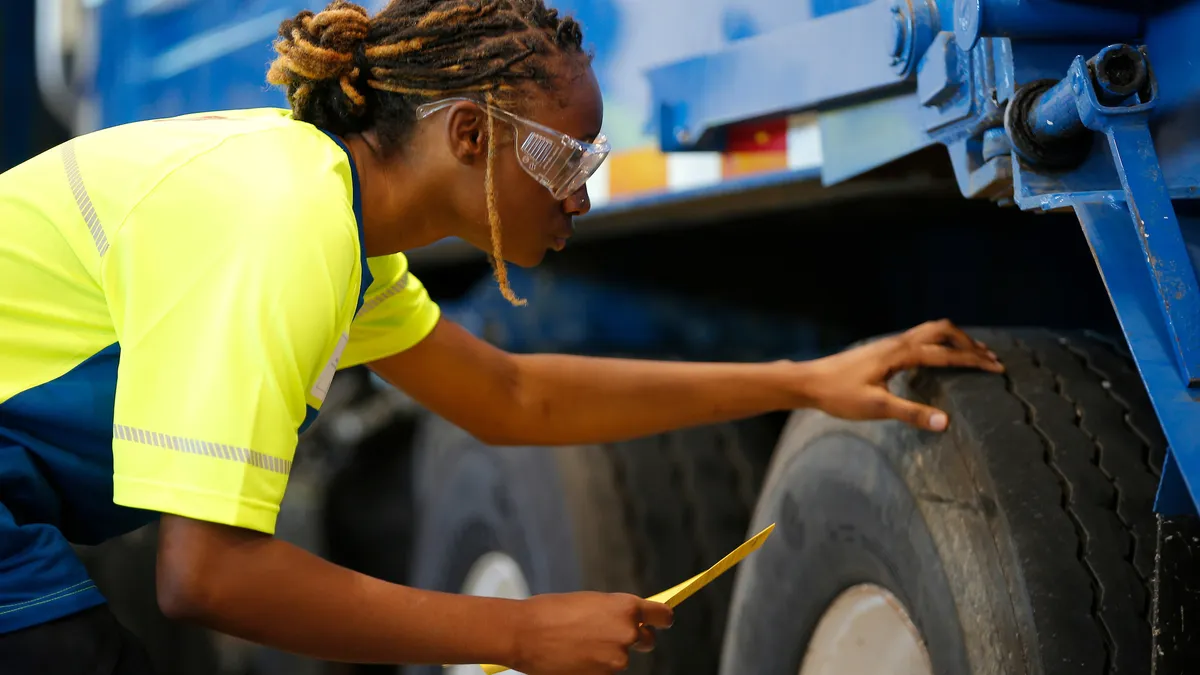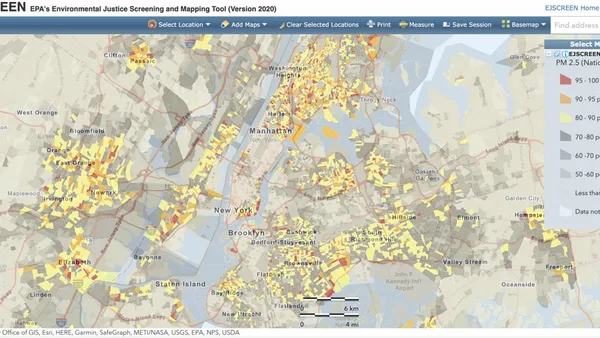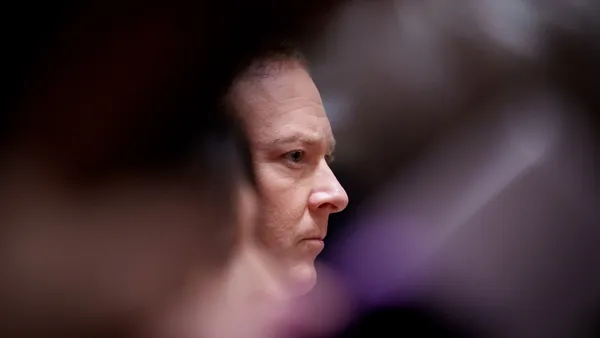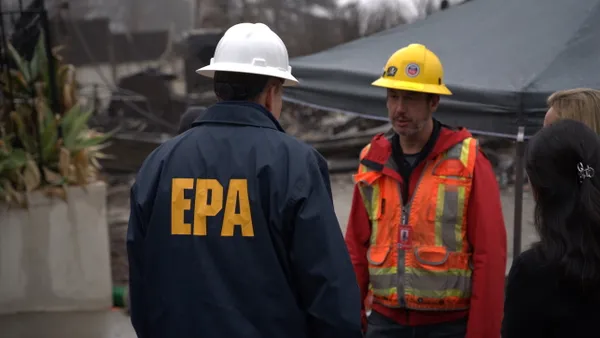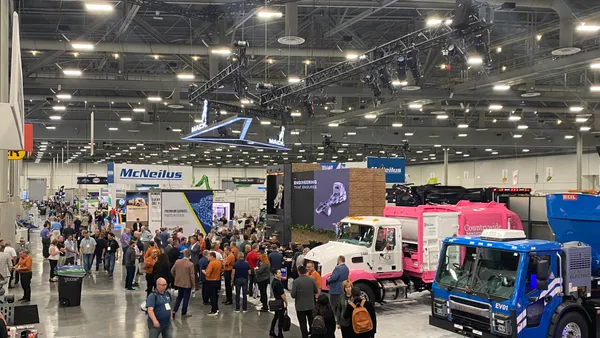Dive Brief:
- Republic Services shareholders voted down a proposal last week that would have required the company to prepare a report on how its climate-related policies affect workers and its supply chain. Republic’s board of directors urged a no vote.
- The International Brotherhood of Teamsters made the proposal. The labor union argued that Republic needs to address the impact of artificial intelligence and automation — which Republic plans to use to pursue a circular economy for plastics, among other climate priorities — on workers and communities.
- The company responded that its climate plan already includes engagement with stakeholders and said it would “continue to responsibly integrate technology” while balancing upskilling and retaining employees, per a securities filing ahead of the meeting.
Dive Insight:
Republic Services has several 2030 goals in its sustainability plan. They include reducing absolute scope 1 and 2 greenhouse gas emissions by 35% and increasing the “recovery and circularity” of certain materials by 40%. Those goals have been certified by the Science Based Targets initiative, and Republic uses several common reporting standards for its annual sustainability report.
In its proposal, the Teamsters argued those goals should also take into account the principles of a just transition, which ensures “no one is left behind” by decarbonization policies, according to the World Benchmarking Alliance.
The union said that transition policies already underway could lead to job reductions. For instance, Republic noted in its most recent annual report that it has moved 77% of its residential collection routes to automated single-driver trucks. That switch decreases emissions, the company reported, but it also decreases “labor costs,” which the Teamsters cited as cause for concern.
Meanwhile, the use of AI and automation is also remaking jobs in recycling. Republic has touted its “Next-Gen” MRF in Plano, Texas, as being better at capturing recyclable material after a renovation completed in 2018. But that MRF, which uses automation with AI, reopened with half the labor it employed prior to the renovation, according to the Teamsters’ proposal.
“With automation core to Republic Services’ climate-strategy, there is an urgent need to develop a just transition plan to ensure its actions are fair and equitable to affected workers and communities,” the union argued in its proposal.
Republic is not alone in making these changes — they’re part of a broader shift in the industry visible across major companies toward increased efficiency amid a tight labor market. Those issues have dovetailed with the industry’s increased focus on sustainability measures as major waste and recycling companies tout themselves as environmental solutions leaders in the corporate world.
Republic declined to comment further on the proposal, pointing instead to comments it made in its initial proxy statement. The company’s board of directors pushed back on the proposal in several ways, including by noting that labor impacts are already factored into its climate policies. The company also hired an independent firm to conduct a civil rights assessment that's still in process. The audit came after a Teamsters shareholder proposal for such a review was rejected in 2022.
The company also touted its upskilling initiatives. It runs a tuition-free technical training institute and removed college degree requirements from more than 95% of the company's roles last year, according to the proxy statement. Republic also noted that more than 130 employees earned commercial driver’s licenses through the company's training programs.
“Republic’s existing initiatives and disclosures regarding stakeholder engagement, sustainability and talent sufficiently address the proposal’s underlying request for a report on these matters,” the board said in its recommendation. “There is no meaningful gap in our ongoing strategy that warrants the requested additional and redundant disclosures.”
Other resolutions regarding executive compensation and board members at last week’s meeting were approved. Ultimately, 15% of shareholders voted in favor of the Teamsters proposal, while the vast majority voted against. A Teamsters spokesperson said it was “alarming” that the proposal was voted down.
“Republic Services has not committed to reporting on a ‘just transition’ strategy despite the inevitable role of automation and AI technology in the company’s climate goals,” Kara Deniz, assistant director of communications, said in an emailed statement following the vote. “It is crucial that Republic develop a clear ‘just transition’ strategy that considers the workers who have made Republic so profitable, and that addresses the impact this company’s climate strategies will have on working people.”



